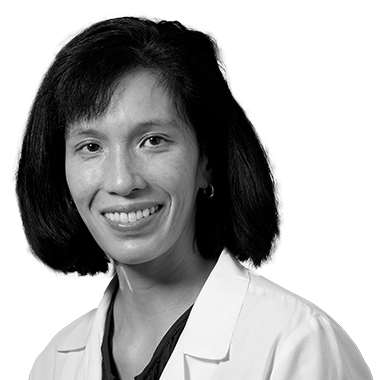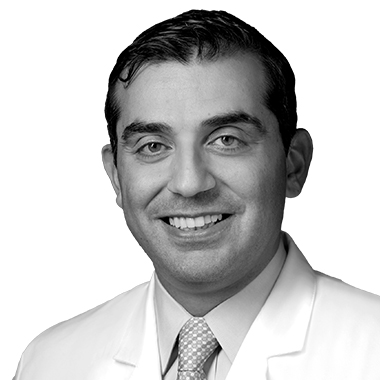Breaking Barriers
Bloomberg Gift Will Make Johns Hopkins Free for Most Medical Students

Illustration by Alan Kitching
A new gift of $1 billion from Bloomberg Philanthropies, announced in July, will make Johns Hopkins free for most medical students and expand financial aid for future nurses and public health pioneers, infusing these critical professions with top talent from all socioeconomic and geographic backgrounds and communities.
For most students seeking an M.D. at Johns Hopkins, the funding will cover the full cost of attendance, including tuition and living expenses such as rent.
The new gift to Hopkins furthers Bloomberg's commitment to addressing complex American health challenges by removing the economic barriers that stand between America's most promising students from low-income and middle-class families and their dreams of saving lives and making an impact on their communities. This dramatic expansion of financial aid support for graduate and medical students also builds on the transformative impact of Bloomberg's 2018 gift for undergraduate aid at Johns Hopkins University.
Beginning in fall 2024, Johns Hopkins will offer free tuition for students pursuing an M.D. who come from families earning under $300,000, a figure that represents 95% of all Americans. Additionally, Johns Hopkins will cover living expenses on top of tuition and fees for medical students from families that earn up to $175,000, a threshold inclusive of the vast majority of families in the U.S.
Nearly two-thirds of current and entering medical students at Johns Hopkins will immediately qualify for either free tuition or free tuition plus living expenses. Eligible new and returning medical students received updated financial aid packages that reflect the gift's impact.
“As the U.S. struggles to recover from a disturbing decline in life expectancy, our country faces a serious shortage of doctors, nurses, and public health professionals — and yet, the high cost of medical, nursing, and graduate school too often bars students from enrolling,” says Michael R. Bloomberg, founder of Bloomberg Philanthropies and Bloomberg L.P. and a 1964 graduate of Johns Hopkins. “By reducing the financial barriers to these essential fields, we can free more students to pursue careers they're passionate about — and enable them to serve more of the families and communities who need them the most.”
Addressing the complex challenges driving recent declines in American life expectancy — including chronic diseases and entrenched health inequities — requires institutions like Johns Hopkins to bring new perspectives to the field and to seek out untapped talent and brilliant ideas in every corner of the country, university leaders note. But the high cost of a medical education today discourages some of the brightest students from low-income and middle-class families from even applying to medical school.
“Extraordinary talent exists in every community across America, a fact borne out by the transformative impact of Mike Bloomberg's historic gift for financial aid to Hopkins undergraduates six years ago that dramatically expanded the breadth of experience and accomplishment of our student body,” says Ron Daniels, president of Johns Hopkins University. “Removing financial barriers to individual opportunity fuels excellence, innovation, and discoveries that redound to the benefit of society.”
This new gift from Bloomberg Philanthropies builds on the school of medicine's student debt–reduction initiative launched in 2020 with generous gifts from Joanne and Bill Conway and from Kim and Jim Davis, as well as numerous alumni and other donors. Through those prior scholarships, Johns Hopkins was able to begin expanding access and reducing medical student debt. In the 2023–24 academic year, the average total student loan debt for school of medicine graduates had declined to approximately $105,000.
In addition to investing in future generations of doctors, this $1 billion endowment from Bloomberg Philanthropies will support leaders in other critical health-related fields through increased graduate financial aid in the Johns Hopkins Bloomberg School of Public Health and School of Nursing, and it will expand aid for graduate degrees offered by the Johns Hopkins schools of Education, Engineering, Business, Arts and Sciences, and Advanced International Studies; the Peabody Institute; and the newly announced School of Government and Policy. The gift also will support the development of a new program to draw impact-focused interdisciplinary leaders into the worlds of research, industry, and government through innovations in Ph.D. education and training.
This new philanthropic contribution is the latest effort by Bloomberg — the 108th mayor of New York City who also served as the chairman of the Johns Hopkins University board of trustees from 1996 to 2002 — to remove economic barriers to opportunity for top American students.
Bloomberg's record 2018 contribution of $1.8 billion to undergraduate financial aid had a transformative impact on the Johns Hopkins student body. By dramatically expanding scholarship support, the university was able to simultaneously attract the world's most academically qualified undergraduates and transform the makeup of its undergraduate programs. The number of undergraduate students entering Johns Hopkins from low-income backgrounds and/or who are the first in their families to attend college (FLI) has grown by 43% since the Bloomberg gift went into effect. Today, FLI students make up nearly a third of the Hopkins undergraduate population, surpassing most other Ivy League and Ivy League–adjacent institutions.
In 2021, Johns Hopkins University and Bloomberg Philanthropies also announced the launch of the Vivien Thomas Scholars Initiative, devoted to addressing historical underrepresentation in science, technology, engineering and math (STEM) fields, particularly in leadership roles across universities, government, and industry. The $150 million endowment creates additional pathways for students from historically Black colleges and universities and minority-serving institutions to pursue and receive PhDs in STEM fields at Johns Hopkins.
Freedom for Grad Students to Concentrate on Their Studies
Jennifer Lee ’02, senior associate dean for Women in Science and Medicine in the Office of Faculty at the School of Medicine

Jennifer Lee
I worked extra jobs while I was a medical student at Johns Hopkins to help pay for expenses. When my clinical rotation schedule became too demanding, I had to sign out additional loans to pay my rent and buy groceries. I remember the stress of knowing I would have to somehow pay these loans back. I wanted to be a pediatrician for low-income families, but I knew that I would struggle for decades to pay back these loans unless I instead took a job with higher salary. This gift will take these worries away for our future Johns Hopkins medical students. We become physicians and scientists to serve society and make people's lives better. With this incredible gift, students will be able to concentrate on their studies. They can choose their jobs based on their desire and motivation to care for specific patient populations. This gift will move us toward equity in medicine and support students from all socioeconomic backgrounds in reaching their full potential.
Making Dreams Come True for First-Gen Students
Mohammad E. Allaf ’00, director of the Department of Urology and the Brady Urological Institute at Johns Hopkins

Mohammad E. Allaf
As a first-generation American and the first in my family to attend medical school, I know firsthand the immense financial burden that medical education can place on families. Without the financial aid I received at Johns Hopkins, pursuing my dream of becoming a physician would have been impossible. This transformational gift will ease this burden for many families and empower future medical students to reach their full potential. Freed from resource insecurity, students can now focus on their education and go on to advance medical science, education, and patient care, just as I have been able to do in my role as director of Urology here at Johns Hopkins.
“Enriching our class further with a full spectrum of socioeconomic backgrounds provides a space where diverse perspectives can be shared and appreciated.”
Risha Irvin
An Appreciation for Diverse Perspectives
Risha Irvin, director of the Health Equity Program at Johns Hopkins Health System and an associate professor, Division of Infectious Diseases in the Department of Medicine

Risha Irvin
This gift is not only transformative for the student but also transformative in our pursuit of health equity. It will allow students from all socioeconomic backgrounds to choose Johns Hopkins University School of Medicine for their medical training without worrying about how they will finance their education. Enriching our class further with a full spectrum of socioeconomic backgrounds provides a space where diverse perspectives can be shared and appreciated. This translates into empathy for the lived experiences of both colleagues and patients. When we can increase our empathy for the lived experience of others, we can create solutions to improve barriers to care.
Improved Health Outcomes for Socially Marginalized Groups
Lisa Cooper, Bloomberg Distinguished Professor and founder of the Center for Health Equity
 Lisa Cooper
Lisa CooperThe new gift to Hopkins from Bloomberg Philanthropies not only invests in the next generations of doctors, it also helps efforts to close enormous health disparities by race, income, and geography in our country. Extensive research, including my own, shows that when there is a more diverse medical workforce, patients overall, but especially those from socially marginalized groups, have better access to care and are more likely to participate in decisions about their care, take their medications as prescribed, and have lower death rates.
A Student Body that Mirrors Diversity
Nathan Irvin, assistant professor of emergency medicine, who was a first-generation student

Nate Irvin
This gift will be transformational in eliminating barriers to accessing a world-class education at Johns Hopkins. It will enable us to welcome students from diverse socioeconomic backgrounds and geographic areas, creating a student body that mirrors the diversity of the patients we serve daily. The gift will help us matriculate future leaders of medicine who will advance our health equity goals and enrich our learning community with varied perspectives and lived experiences. I hope it will inspire students to pursue a career in medicine based on their passions and aspirations, granting them the freedom to commit their talents to addressing health care needs in diverse communities across the nation and world, free from the burden of student debt that often influences
career decisions.
A More Inclusive Medical Workforce
Deidra C. Crews, a health equity expert and professor of Medicine in the Division of Nephrology at the Johns Hopkins University School of Medicine

Deidra C. Crews
In my work with students pursuing medical education who are from socioeconomically under-resourced backgrounds, I have always been struck by the tough decisions they have to make about their futures, all heavily dictated by their own and their family's financial status. These tough decisions, often to delay or forego a career in medicine due to the costs of education, undoubtedly have led us to a physician workforce that is not reflective of the socioeconomically diverse communities we serve which hinders our ability to innovate and tackle profound health inequities. This incredibly generous gift will mean that more of our students can dream bigger about their futures, unencumbered by financial burden, and we can move closer to an inclusive medical workforce.
